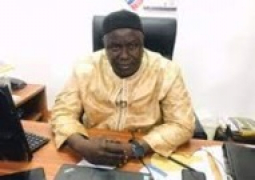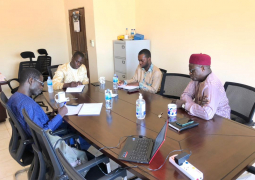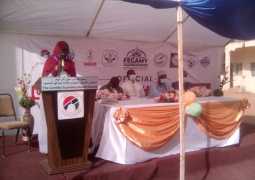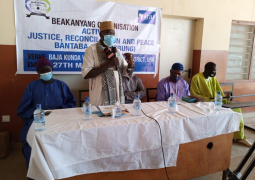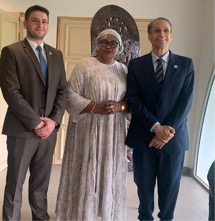
The initiative, a forward-looking analysis was aimed at evaluating the implementation of Sustainable Development Goals (SDGs) in Banjul. Through the development of the VLR, Banjul aims to identify city priorities based on empirical data and extensive community consultations.
Likewise, the forum was part of a pilot project designed to promote inclusive, resilient, and sustainable development by localising the SDGs in Banjul.
Key partners in the initiative include the United Nations Human Settlements Program (UN-Habitat), United Nations Economic Commission for Africa (UNECA), United Nations Department of Economic and Social Affairs (UNDESA), and United Cities and Local Governments Association (UCLG), all working under the coordination framework of the UN Resident Coordinator's Office (UNRCO).
At the event, Rohey Malick Lowe, Mayoress of Banjul outlined the inclusive nature of recent initiatives in Banjul, saying those efforts have not only enhanced the quality of life for residents, but also positioned the city as a leader in localising the Sustainable Development Goals (SDGs).
Despite those successes, Mayor Lowe acknowledged that ongoing challenges that need to be addressed, as climate change remains a significant issue, as evidenced by the severe flooding in Banjul in the past years.
“Gender inequality is also a persistent problem, with only one female mayor since the inception of local government administration. Additionally, there is a need for more vocational institutions to equip youth with employment skills and for women cooperative banks to support economic empowerment.” Mayoress Lowe said
She also highlighted collective opportunity to foster positive change and build an inclusive, sustainable, and resilient city.
To that end, she called on all to maintain the momentum generated during the period and to work together towards a brighter future for all Banjulians.
"I deeply appreciate your dedication, passion, and commitment to our city. I eagerly anticipate our continued collaboration and the achievements ahead. Together, let's make Banjul a city we are all proud to call home."
Telman Maharramov, Partnership and Programmes Management Officer of the SDG Localization and Local Governments Team at UN Habitat, pointed out that UN-Habitat has been a leader in these efforts since the endorsement of the 2030 Agenda, and even earlier.
"We have developed one of the most comprehensive approaches to SDG localization, covering everything from data collection to reporting, monitoring, and long-term planning strategies. Our commitment to supporting cities worldwide aims to amplify their voices, resources, and capacities. As the Secretariat and permanent co-chair of the Local2030 Coalition—a UN-wide initiative dedicated to localizing the SDGs—we are dedicated to bridging the gap between the UN system and local and regional governments to support their initiatives."
He disclosed that the event is truly groundbreaking and that devoting an entire day to exploring the critical intersection of cities and the SDGs is a remarkable achievement.
“Throughout the day, we will delve into a variety of essential topics, from the pivotal role of cities to action-oriented Voluntary Local Reviews (VLRs) and SDG localization efforts, with a specific focus on implementing the SDGs in Banjul.” he stated
Also speaking, Karl Frederick Paul, UN Resident Coordinator in The Gambia, expressed delight to be part of the initiative, further extending gratitude to Mayoress Lowe and all the organising entities.
"We gather here in Banjul, a city that epitomizes both the challenges and vast potential of urban centers in our quest for sustainable development. With just six years remaining until 2030, the urgency of our mission has never been greater. Global statistics reveal that only 17 percent of the SDGs are on track, highlighting the crucial need for SDG acceleration and fulfillment here in The Gambia."
He commended The Gambia's local authorities for their relentless efforts and dedication in advancing the 2030 Agenda.
“Banjul, like many coastal cities, faces distinct challenges. Rising sea levels, extreme weather events, and the pressures of rapid urbanisation are not theoretical issues here—they are everyday realities." he stated.


